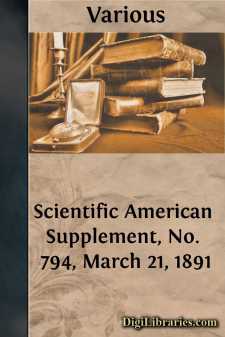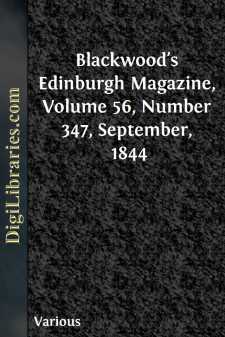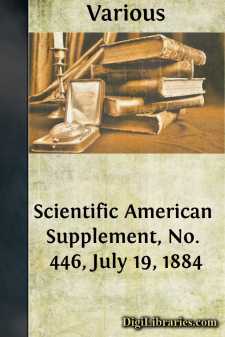Categories
- Antiques & Collectibles 13
- Architecture 36
- Art 48
- Bibles 22
- Biography & Autobiography 813
- Body, Mind & Spirit 142
- Business & Economics 28
- Children's Books 17
- Children's Fiction 14
- Computers 4
- Cooking 94
- Crafts & Hobbies 4
- Drama 346
- Education 46
- Family & Relationships 57
- Fiction 11829
- Games 19
- Gardening 17
- Health & Fitness 34
- History 1377
- House & Home 1
- Humor 147
- Juvenile Fiction 1873
- Juvenile Nonfiction 202
- Language Arts & Disciplines 88
- Law 16
- Literary Collections 686
- Literary Criticism 179
- Mathematics 13
- Medical 41
- Music 40
- Nature 179
- Non-Classifiable 1768
- Performing Arts 7
- Periodicals 1453
- Philosophy 64
- Photography 2
- Poetry 896
- Political Science 203
- Psychology 42
- Reference 154
- Religion 513
- Science 126
- Self-Help 84
- Social Science 81
- Sports & Recreation 34
- Study Aids 3
- Technology & Engineering 59
- Transportation 23
- Travel 463
- True Crime 29
Sort by:
by:
Various
O the angels know the blessed day, And strike their harps anew? Then may the echo of their lay Float sweetly down to you, And fill your soul with Christmas song That your heart shall echo your whole life long. Havergal. A bright and happy Christmas to you! Lift up yourselves to the great meaning of the day, and dare to think of your humanity as something so sublimely precious that it is worthy of being...
more...
by:
Various
ELECTRICAL LABORATORY FOR BEGINNERS. By GEO. M. HOPKINS. It is only when theory and practice, study and experiment, go hand in hand that any true progress is made in the sciences. A head full of theory is of little value without practice, and although the student may apply himself with all his energies for years, his time will, to a great extent, have been spent in vain, unless he by experiment rivets...
more...
by:
Various
SIR WILLIAM FOLLETT. The disappearance from the legal hemisphere of so bright a star as the late Sir William Follett, cast a gloom, not yet dissipated, over the legal profession, and all classes of society capable of appreciating great intellectual eminence. He died in his forty-seventh year; filling the great office of her Majesty's Attorney-general; the head and pride of the British Bar; a...
more...
by:
Various
M. LOUIS BLANC M. Louis Blanc, a democratic journalist, with all, and perhaps more than the usual talents of the Parisian journalist—with all, and more than the usual faults of one—has undertaken to write the history of his country, during and since the revolution of 1830. What can we expect to be the result of such an undertaking? What can we expect from a man who sits down to a task of this...
more...
by:
Various
IMPROVED FILTER PRESSES. Hitherto it has been found that of all the appliances and methods for separating the liquid from the solid matters, whether it is in the case of effluents from tanneries and other manufactories, or the ocherous and muddy sludges taken from the settling tanks in mines, some of which contain from 90 to 95 per cent. of water, the filter press is the best and the most economical,...
more...
by:
Various
ohn Calvin was born in the village of Noyon, in northeastern France, on the 10th of July, 1509. He was intended by his parents for the priesthood, for which he seemed to be peculiarly fitted by his naturally austere disposition, averse to every form of sport or frivolity, and he was given an excellent education with that calling in view; but finally at the command of his father—whose plans for his...
more...
by:
Various
LOCOMOTIVE FOR ST. GOTHARD RAILWAY. We give engravings of one of a type of eight-coupled locomotives constructed for service on the St. Gothard Railway by Herr T.A. Maffei, of Munich. As will be seen from our illustrations, the engine has outside cylinders, these being 20.48 in. in diameter, with 24 in. stroke, and as the diameter of the coupled wheels is 3 ft. 10 in., the tractive force which the...
more...
by:
Various
A FEW WORDS ABOUT AMERICAN SLAVE CHILDREN. Children, you are free and happy. Kind parents watch over you with loving eyes; patient teachers instruct you from the beautiful pages of the printed book; benign laws, protect you from violence, and prevent the strong arms of wicked people from hurting you; the blessed Bible is in your hands; when you become men and women you will have full liberty to earn...
more...
by:
Various
Never was there a juster observation, than that, in ordinary times, in the same state, genius moves in a circle; originality is lost amidst imitation; we breathe thought not less than vital air. This is more especially the case in all those branches of opinion or philosophy which relate to internal economy, or the social concerns of men. There, it is not merely abstract principle, or disinterested...
more...
by:
Various
MY PET RECIPES TRIED and TRUE CONTRIBUTED BY THE LADIES AND FRIENDSOF ST. ANDREW'S CHURCHQUEBEC "We may live without poetry, music and art; We may live without conscience, and live without heart; We may live without friends; we may live without books; But civilized man cannot live without cooks."—Owen Meredith. QUEBEC "DAILY TELEGRAPH" PRINTING HOUSE 1900 Rhymes to Remember......
more...











